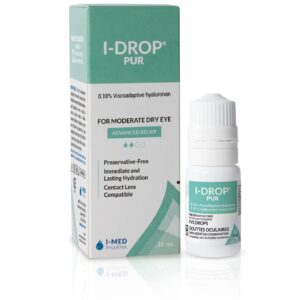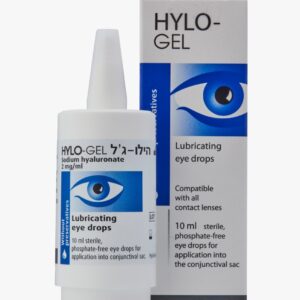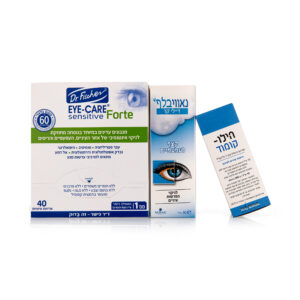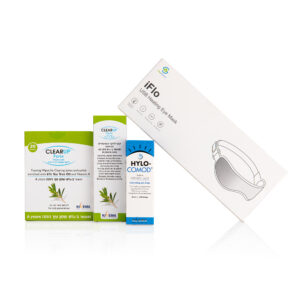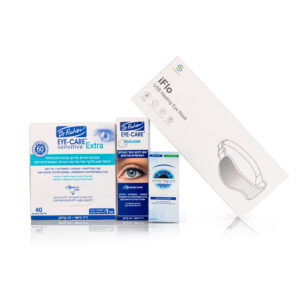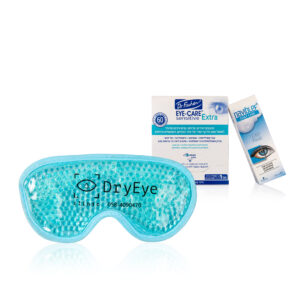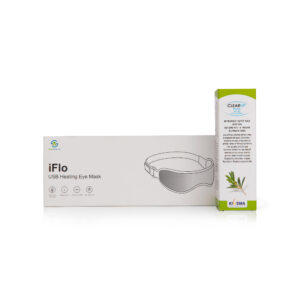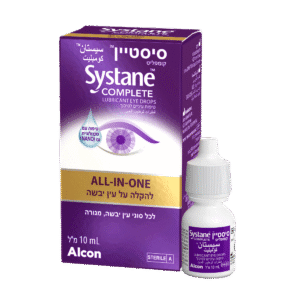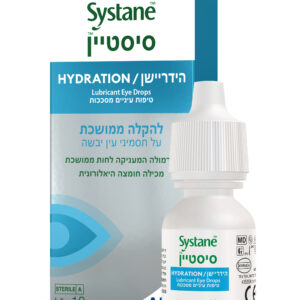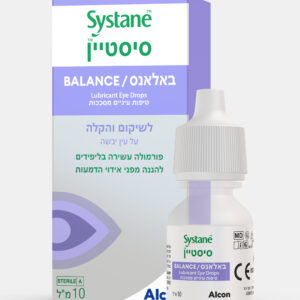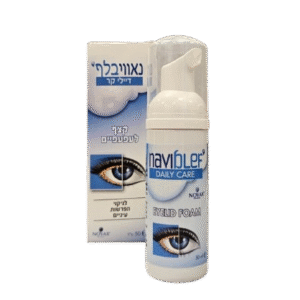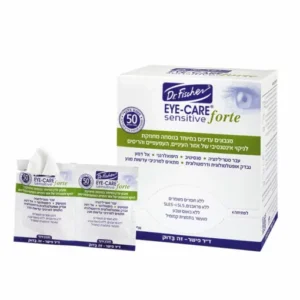
טיפות דמעות – מה זה ולמה משתמשים בהן?
טיפות דמעות הן תמיסות רפואיות או קוסמטיות שמטרתן להקל על
Zovirax is a well-known antiviral drug used to treat infections caused by different strains of herpes viruses. Developed in the 1970s, Zovirax has since become a cornerstone of antiviral therapy, particularly for its effectiveness in the management of herpes simplex and varicella-zoster infections. The active substance in it, acyclovir, works by inhibiting replication of viral DNA, thus reducing the severity and duration of outbreaks. Here we will examine the importance of Zovirax in modern medicine, its role in the fight against viral infections, and its effect on patient care and public health.

Zovirax, commonly known as Acyclovir, is an antiviral drug that targets herpes viruses. It is available in several formulations, including creams, ointments, tablets, suspensions, and intravenous injections, making it versatile for different types of infections and patient needs.
The active ingredient in Zovirax, acyclovir, works by interfering with the viral DNA polymerase enzyme, which is essential for viral DNA replication. By inhibiting this enzyme, acyclovir prevents the virus from multiplying, helping to control the infection and reduce symptoms.
Zovirex is primarily used to treat infections caused by the herpes simplex virus (HSV) and the varicella zoster virus (VZV). HSV infections include genital herpes and cold sores, while VZV causes chickenpox and shingles. In addition to these primary uses, Zovirex is sometimes used to treat other herpes virus-related conditions, such as Epstein-Barr virus (EBV) and cytomegalovirus (CMV) infections in immunocompromised patients.
The drug's versatility and effectiveness make it a critical tool in antiviral treatment. By reducing the severity and duration of herpes virus outbreaks, Zovirex improves patients' quality of life and helps manage symptoms in both acute and chronic cases.
Zovirax is widely used to manage various infections caused by herpes simplex virus (HSV) and varicella zoster virus (VZV). Its medical applications include treatment of both primary infections and recurrent episodes.
For herpes simplex virus (HSV) infections, Zovirex is commonly used for genital herpes and cold sores (herpes labialis). In genital herpes, Zovirax helps reduce the severity and frequency of outbreaks, provides relief from painful symptoms, and minimizes the risk of transmission. For frostbite, topical Zovirax can shorten healing time and ease discomfort.
Zovirax is also effective against the varicella-zoster virus (VZV), which is responsible for chickenpox and shingles. In cases of chickenpox, especially in adults and immunosuppressed people, Zovirax can reduce the severity of symptoms and prevent complications. For shingles, Zovirex helps reduce pain, speed the healing of blisters, and reduce the risk of postherpetic neuralgia, a condition characterized by persistent nerve pain following an outbreak of shingles.
Beyond its primary uses, Zovirex has other applications for the treatment of infections associated with Epstein-Barr virus (EBV) and cytomegalovirus (CMV). Although not its primary indication, Zovirax is sometimes used to treat EBV-related conditions such as infectious mononucleosis, especially in severe cases. Similarly, in immunocompromised patients, Zovirex can be used to prevent or treat CMV infections.
Zovirax is available in different formulations, each suitable for different types of infections and patient needs. Correct use depends on the form and the specific condition being treated.
For topical applications, such as creams and ointments, Zovirex is in direct contact with the affected area. For cold sores or genital herpes, use the cream at the first sign of an outbreak – usually tingling, redness or itching. It should be used usually five times a day for about four days. The area should be clean and dry before application, and hands should be washed thoroughly before and after applying the cream to prevent the spread of the virus.
Oral Zovirax, available in tablets and suspensions, is used for more common or more severe infections. For genital herpes, the standard dose is 200 mg five times a day for ten days during an initial outbreak, with a lower dose for recurrent episodes. For shingles, the typical dose is 800 mg five times a day for seven to ten days. The medicine must be taken with plenty of water to ensure proper hydration, which is especially important for kidney function.
In severe cases or for patients who are unable to take oral medication, Zovirex can be given intravenously. This form is often used in hospital settings for severe infections such as herpes encephalitis or for immunocompromised patients. The dose is adjusted to the patient's weight and kidney function, with close monitoring by health professionals.
Regardless of the form, it is essential to complete the full course of treatment as prescribed, even if symptoms improve before the medication is finished. This ensures that the infection is fully controlled and reduces the risk of resistance.
Patients should follow the instructions of the medical staff regarding dosage and duration, and should inform them of any other medications or supplements they are taking to avoid possible interactions. It is recommended to perform regular medical follow-up to monitor the effectiveness and adjust the treatment as needed.

Like all medicines, Zovirex can cause side effects, although not everybody gets them. Understanding these potential side effects and the necessary precautions can help manage treatment effectively and safely.
Common side effects of Zovirax include nausea, vomiting, diarrhea, and headaches. These symptoms are usually mild and tend to go away on their own. Topical preparations may cause temporary burning in the area. For most patients, these side effects are manageable and do not require discontinuation of medication.
Serious side effects are rare but can occur. These include allergic reactions such as rash, itching, swelling (especially of the face, tongue or throat), severe dizziness and breathing problems. In some cases, Zovirex can affect kidney function, leading to signs such as a change in the amount of urine, back pain, or blood in the urine. Neurological side effects, including confusion, hallucinations, or convulsions, are also possible, especially in the elderly or those with kidney problems. If any of these serious side effects occur, it is essential to seek medical attention immediately.
Important precautions when using Zovirax. Patients with a known allergy to acyclovir or valacyclovir should not use Zovirex. In addition, those with kidney disease should inform their doctor, as dosage adjustments may need to be made to prevent kidney damage. Adequate hydration is essential, especially for those taking oral or intravenous medications, to help protect the kidneys.
Pregnant and lactating women should use Zovirex only if there is a clear need and determined by the attending physician, as there is limited information on its safety in these populations. The potential benefits and risks must be carefully weighed. Elderly patients and those with a weakened immune system may require closer monitoring during treatment.
Zovirex can interact with other drugs, may change its effectiveness or increase the risk of side effects. Knowing these interactions and managing them properly is essential for safe and effective treatment.
One notable interaction is with probenecid, a drug used to treat gout. Probenazid can increase acyclovir blood levels, which may lead to more serious side effects. If a patient is taking probenecid, the doctor may need to adjust the dose of Zovirex or monitor the patient more closely.
Other drugs that can interact with Zovirex include drugs that affect kidney function, such as certain antibiotics (eg, aminoglycosides), antiviral drugs (eg, tenofovir), and drugs used in chemotherapy. These drugs can increase the risk of kidney damage when taken together with Zovirex, necessitating careful monitoring and possible dose adjustments.
Zidovudine, an antiretroviral drug used to treat HIV, may also interact with Zovirax. When used together, there is an increased risk of developing side effects such as fatigue. Patients on HIV treatment should inform their treating physician to ensure proper management of potential interactions.
Over-the-counter medications or nutritional supplements, vitamins, and herbal supplements can also interact with Zovirex. For example, supplements that affect kidney function or blood pressure may increase the risk of side effects. It is important that patients inform their treating physician of all substances they are taking, including over-the-counter products.
To minimize the risk of drug interactions, patients must carefully follow the instructions of the attending physician and attend all scheduled medical appointments. They should not start, stop, or change the dosage of any medication without consulting their healthcare provider. This proactive approach helps ensure that Zovirex can be used safely and effectively in the management of viral infections.
Zovirax has been extensively studied and proven to be effective in the treatment of various herpes infections, making it a cornerstone of antiviral therapy. Clinical trials and real-world use have consistently demonstrated its ability to reduce the severity and duration of symptoms, prevent flare-ups, and improve patients' quality of life.
For herpes simplex virus infections, Zovirex is particularly effective in managing genital herpes and cold sores. Studies have shown that early treatment with Zovirex can significantly shorten the duration of outbreaks, reduce the severity of symptoms and speed healing. For recurrent genital herpes, regular use of Zovirex as suppressive therapy can reduce the frequency of outbreaks by 70-80%, providing significant relief to patients experiencing frequent episodes.
In the case of VZV virus infections, such as chicken pox and shingles, Zovirax has also been shown to be highly effective. For chickenpox, especially in adults and immunocompromised people, Zovirax reduces the number of lesions, shortens the duration of fever, and reduces the risk of complications. In shingles, Zovirax not only helps heal the rash faster but also plays a crucial role in reducing the intensity and duration of complications.
The effectiveness of Zovirax also exists in other uses. For patients with severe or atypical presentations of EBV infections, Zovirex can help manage symptoms and reduce viral load. Similarly, in immunosuppressed patients, Zovirex can be used to prevent or treat cytomegalovirus (CMV) infections, although it is not "first-line therapy".
Despite its widespread use and effectiveness, Zovirex has certain limitations, mainly related to the development of viral resistance and its effectiveness in specific patient populations.
Resistance to acyclovir, the active ingredient in Zovirex, can develop, especially in immunosuppressed patients who require prolonged or repeated courses of treatment. Resistance occurs when the virus undergoes mutations that reduce the drug's ability to inhibit viral replication. Although resistant strains are relatively rare in the general population, they pose a significant challenge among immunosuppressed people, such as those with HIV/AIDS or organ transplant recipients. In such cases, alternative antiviral drugs such as foscarnet or cidofovir may be needed.
The effectiveness of Zovirax can also be limited by the timing of administration. For best results, Zovirex should be started at the first sign of symptoms. Delayed treatment can reduce its effectiveness, especially in the management of herpes simplex and varicella zoster infections. Patients should be educated about identifying early symptoms and seek immediate medical treatment.
Although it is very effective against HSV and VZV, it is less effective against other viruses, such as cytomegalovirus (CMV), where higher doses or alternative therapies may be needed. In addition, its use in the treatment of Epstein-Barr virus (EBV) infections is based on limited evidence, and is generally reserved for severe cases or specific clinical scenarios.
Patients with kidney disease require special consideration when using Zovirex. Because acyclovir is primarily excreted by the kidneys, impaired renal function can lead to drug accumulation and an increased risk of toxicity. Dosage adjustments and close monitoring are essential for these patients to avoid side effects.
In conclusion, while Zovirex remains a highly effective antiviral drug, its use is not without its challenges. The potential for the development of viral resistance, the importance of timely administration and its limitations in specific clinical situations emphasize the need for careful patient management and, in some cases, alternative treatment strategies.
Patient experiences with Zovirax are generally positive, reflecting its effectiveness in managing herpes infections and improving quality of life. Many patients report a significant relief of symptoms and a marked reduction in the frequency and severity of outbreaks.
One common theme in patient testimonials is the quick relief. For those with genital herpes, starting treatment at the first sign of an outbreak often results in milder symptoms and faster healing. For people dealing with frostbite, Zovirax cream is often praised for its quick action. Applying the cream at the first tingling sensation can prevent the wound from developing fully. Patients with shingles also expressed satisfaction with Mesovirex. By reducing pain and speeding up the healing process, Zovirax helps them manage the discomfort associated with this condition.
However, patient experiences may vary. Some may experience minor side effects such as nausea or headaches, which, while manageable, can be bothersome. Patients have reported that while Zovirax is effective, it requires adherence to usage times, which can be challenging.
Overall, the evidence underscores Zovirax's role in effectively managing herpes infections and improving patients' lives by providing relief and reducing the burden of recurrent outbreaks.
While Zovirax is an established antiviral drug, there are several alternatives available to treat herpes infections. These alternatives can be considered based on the patient's needs, preferences, or in cases where Zovirex is not effective or appropriate.
Valacyclovir, marketed as Valtrex, is a popular alternative to Zovirax. It is a prodrug of acyclovir, meaning it turns into acyclovir in the body. Valacyclovir offers the advantage of a more convenient schedule of use, often requiring fewer doses per day compared to Zovirax. This can improve patient compliance and facilitate treatment management. Valacyclovir is used to treat the same conditions as Zovirex, including genital herpes, cold sores, and shingles.
Famciclovir, known by the brand name Famvir, is another effective alternative. It is a prodrug of penciclovir and works similarly to acyclovir by inhibiting viral DNA replication. Famciclovir is particularly useful for treating genital herpes, cold sores and shingles. Some patients may prefer famciclovir due to its favorable side effect profile.
For topical treatment of cold sores, Penciclovir (Denavir) is a common alternative. It is applied directly to the affected area and has been shown to reduce healing time and relieve pain associated with cold sores. Penciclovir is particularly useful for patients who prefer a local treatment option.
In cases where herpes virus infections are resistant to standard antiviral drugs, foscarnet (Foscavir) and cidofovir (Vistide) can be used. These drugs are usually reserved for severe or stubborn cases, especially in immunosuppressed patients. They are given intravenously and require careful monitoring due to their potential for significant side effects.
In conclusion, while Zovirax remains a primary treatment option for herpes virus infections, several alternatives exist. These alternatives offer different advantages, such as different dosage regimens, local applications, and options for resistant infections. Healthcare providers can help patients choose the most appropriate treatment based on their specific needs and medical history.
The future of antiviral therapy, particularly in the context of herpes virus infections, is an area of active research and development. Scientists are constantly exploring new ways to improve the effectiveness, safety and convenience of treatments like Zovirax, as well as developing new treatments to address unmet medical needs.
One promising direction is the development of new antiviral agents that can overcome resistance to existing drugs. The research focuses on identifying compounds with new mechanisms of action that can effectively target resistant strains of herpes simplex and zoster viruses. Next-generation antiviral drugs aim to provide options for patients who do not respond to existing treatments.
Gene editing technologies, such as CRISPR-Cas9, offer another exciting avenue for future research. Scientists are exploring the potential of these technologies to target and disrupt viral DNA within infected cells, providing a more permanent solution to herpes virus infections. Although still in the experimental stages, gene editing could revolutionize the treatment of chronic viral infections.
Vaccines remain a critical focus in the fight against herpes infections. While current antiviral treatments treat symptoms and reduce the frequency of outbreaks, they do not cure the infection. Vaccine development aims to provide long-term immunity and can eliminate the virus from the population. Several vaccine candidates are in various stages of clinical trials, and show promise in preventing primary infections.
Improving drug delivery methods is another area of ongoing research. Innovative delivery systems, such as nanotechnology and sustained-release formulations, are being investigated to improve the bioavailability and therapeutic effects of antiviral drugs such as Zovirax. These advances may lead to more effective treatments with fewer side effects and more convenient schedules.
The research also focuses on interactions between herpes viruses and the human immune system. Understanding these interactions can lead to new therapeutic strategies that enhance the body's natural defenses against viral infections. Immunotherapy, which harnesses the power of the immune system to fight infections, is a promising field that may yield new treatments for herpes infections.
Overall, the future of herpes virus treatment looks promising, with ongoing research aimed at developing more effective, safer, and more convenient treatments. These advances have the potential to significantly improve the management of herpes virus infections and improve the quality of life of affected individuals.
Zovirax has been a cornerstone in the treatment of herpes infections for several decades, providing significant relief to millions of patients worldwide. Its effectiveness in managing symptoms, reducing the frequency and severity of outbreaks and preventing complications has made it an essential tool in antiviral therapy.
Despite its widespread use and success, Zovirax is not without its limitations. The potential for viral resistance, the need for timely administration, and its limited efficacy in certain situations underscore the importance of continued research and development. The future holds the promise of new treatments and innovative approaches that can address these challenges and offer even better results to patients.
Future directions in research, including the development of new antiviral agents, gene editing technologies, vaccines, and improved methods of drug delivery, offer hope for more effective and convenient treatments. These advances have the potential to significantly improve the management of herpes virus infections and improve the quality of life of those affected.
In conclusion, while Zovirex is an essential component of antiviral therapy, the continued pursuit of innovation and research will drive the development of new and improved treatments that will ultimately lead to better outcomes for patients with herpes infections.

טיפות דמעות הן תמיסות רפואיות או קוסמטיות שמטרתן להקל על

ויטמין C הוא אחד הוויטמינים החיוניים ביותר לבריאות העיניים, הודות

מרכז מומחים לאבחון וטיפול מתקדם בתסמונת העין היבשה ומחלות פני שטח העין
